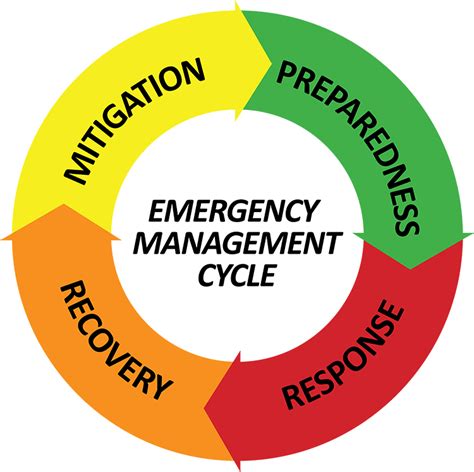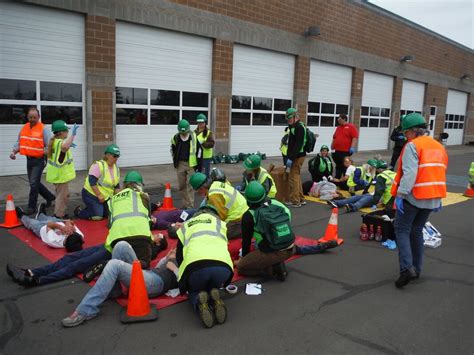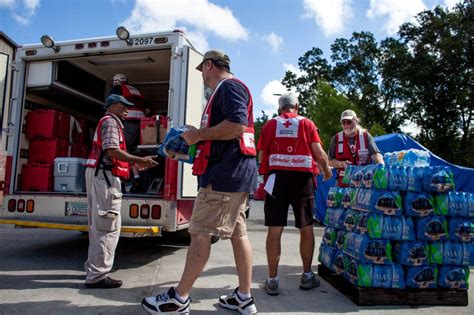Intro
Discover exciting careers in emergency management, from disaster response to crisis management. Explore various roles, including emergency coordinator, risk manager, and business continuity specialist. Learn about job opportunities, required skills, and salary ranges in this field. Get ready to make a difference in crisis situations and advance your career in emergency management.
Emergency management is a vital field that involves preparing for, responding to, and recovering from natural disasters, terrorist attacks, and other emergencies. The demand for skilled professionals in emergency management is on the rise, driven by the increasing frequency and severity of disasters. If you're interested in pursuing a career in emergency management, here's an overview of the opportunities and roles available.
Emergency Management: A Growing Field

The emergency management field is expanding, with the Bureau of Labor Statistics predicting a 5% growth in employment opportunities from 2020 to 2030. This growth is driven by the increasing frequency and severity of natural disasters, such as hurricanes, wildfires, and floods. Additionally, the threat of terrorist attacks and cyberattacks requires emergency management professionals to be prepared to respond to a wide range of emergencies.
Types of Careers in Emergency Management
Emergency management careers span a broad range of disciplines, including:
Emergency Management Specialist
Emergency management specialists work with government agencies, non-profit organizations, and private companies to prepare for and respond to emergencies. Their duties may include:
- Developing emergency response plans
- Conducting risk assessments
- Coordinating with other agencies and organizations
- Responding to emergencies and disasters
Disaster Response and Recovery Specialist
Disaster response and recovery specialists work to support individuals and communities affected by disasters. Their duties may include:
- Providing shelter and food to those affected
- Coordinating with other agencies to provide support services
- Helping communities recover and rebuild
Emergency Medical Technician (EMT)
EMTs provide emergency medical care to those injured in disasters or emergencies. Their duties may include:
- Responding to emergency calls
- Providing medical care and transportation
- Working with other emergency responders to provide care
Firefighter
Firefighters respond to fires and other emergencies, working to protect people and property. Their duties may include:
- Responding to emergency calls
- Fighting fires and rescuing people
- Providing medical care and support
Law Enforcement Officer
Law enforcement officers work to maintain order and safety during emergencies and disasters. Their duties may include:
- Responding to emergency calls
- Providing security and support
- Enforcing laws and regulations
Skills and Education Required for Emergency Management Careers
To succeed in emergency management careers, you'll need:
- A bachelor's degree in emergency management, public administration, or a related field
- Strong communication and leadership skills
- Ability to work under pressure and make quick decisions
- Knowledge of emergency response protocols and procedures
- Familiarity with federal, state, and local laws and regulations
Emergency Management Certifications
Several certifications are available for emergency management professionals, including:
- Certified Emergency Manager (CEM)
- Associate Emergency Manager (AEM)
- Certified Business Continuity Professional (CBCP)
These certifications demonstrate your expertise and commitment to the field, and can be beneficial in advancing your career.
Salary Range for Emergency Management Careers
Salaries for emergency management careers vary depending on the specific job, location, and level of experience. Here are some approximate salary ranges:
- Emergency management specialist: $50,000 - $80,000 per year
- Disaster response and recovery specialist: $40,000 - $70,000 per year
- EMT: $30,000 - $60,000 per year
- Firefighter: $40,000 - $80,000 per year
- Law enforcement officer: $50,000 - $90,000 per year
Conclusion and Call to Action
Emergency management careers offer a rewarding and challenging way to make a difference in your community. With a growing demand for skilled professionals, now is the perfect time to pursue a career in emergency management. Whether you're just starting out or looking to advance your career, we encourage you to explore the opportunities and roles available in this vital field.

Emergency Management Image Gallery










We hope this article has provided you with a comprehensive overview of careers in emergency management. If you have any questions or would like to share your experiences in the field, please leave a comment below.
